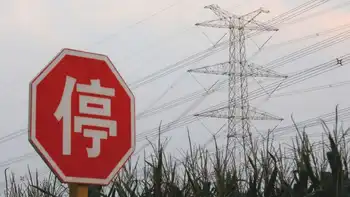Texas PUC talks wind power
The Public Utilities Commission of Texas met with wind energy on the agenda. While it took no action, that should change. The group is working to make the preliminary order to establish Competitive Renewable Energy Zones final, with details added.
"The indication is it will be signed and filed (soon)," said PUC spokesman Terry Hadley.
That would mark the end of the first phase of getting wind energy going in the Panhandle on a larger scale. However, there are concerns on at least one team's part that those added details could be a problem. Shell WindEnergy and Luminant have a partnership agreement to develop a 3,000-megawatt wind farm in Briscoe County.
The final order is to include the guidelines for the Electric Reliability Council of Texas to study where to build transmission lines to get the power from wind farms to population centers and who should do the building, as suggested by PUC Chairman Paul Hudson. The problem is there may be a cap of 1,000 megawatts per project.
The PUC received a letter from Shell that said it was "unclear whether the chairman's suggestion of such a cap is merely a suggested per-project cap for the purpose of the assumptions required for the ERCOT transmission study or whether it is intended to be something more.
"If the suggestion is that the Commission should seek to impose an arbitrary limitation on the size of any project to be developed, that would be a matter of genuine concern," the letter stated.
In other business, the PUC commissioners voted to send a dispute between John Deere Wind, a developer of wind farms in the northern Panhandle, and Southwestern Public Service to mediation prior to a hearing by a judge in the State Office of Hearings.
"It's a cost dispute on the price they receive on the electricity they generate," said Wes Reeves, spokesman for Xcel Energy, owner of SPS. Commissioners also approved a request from SPS to change the way it figures its fuel costs. Those costs are passed directly on to customers.
"Hopefully it will allow us to capture the cost better," Reeves said.
"Sometimes when we go back we see we charged too much or too little, and this may keep us from having to do refunds or surcharges. We'd like to be a little more accurate."
Related News

Zero-emission electricity in Canada by 2035 is practical and profitable
OTTAWA - A powerful derecho that left nearly a million people without power in Ontario and Quebec on May 21 was a reminder of the critical importance of electricity in our daily lives.
Canada’s electrical infrastructure could be more resilient to such events, while being carbon-emission free and provide low-cost electricity with a decentralized grid powered by 100 per cent renewable energy, according to a new study from the David Suzuki Foundation (DSF).
This could be accomplished by 2035 by building a lot more solar and wind, adding energy storage, while increasing the energy efficiency in buildings, and modernizing provincial energy grids.…





